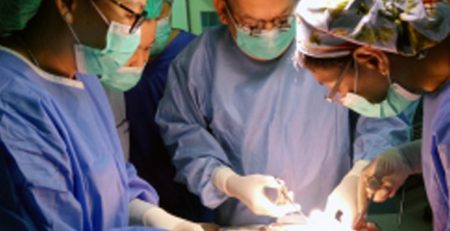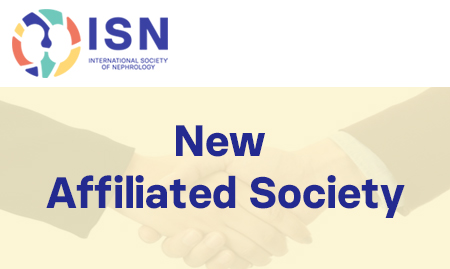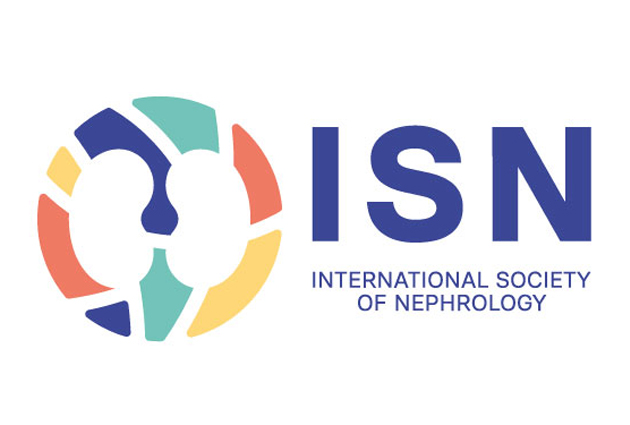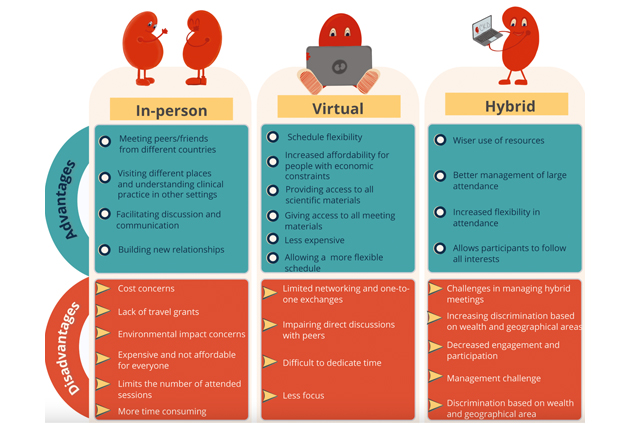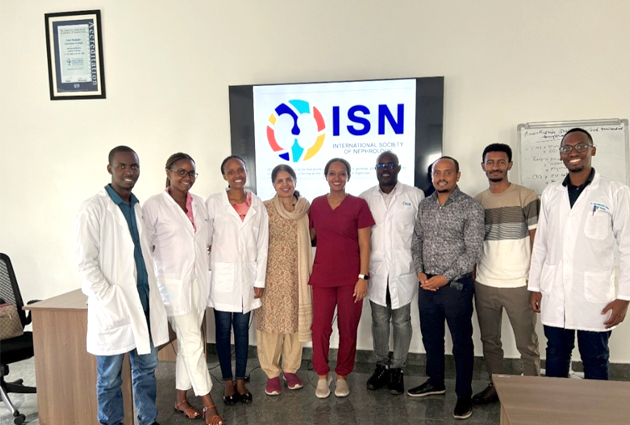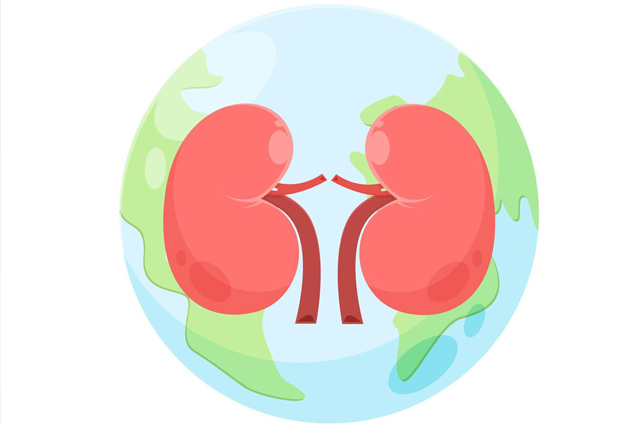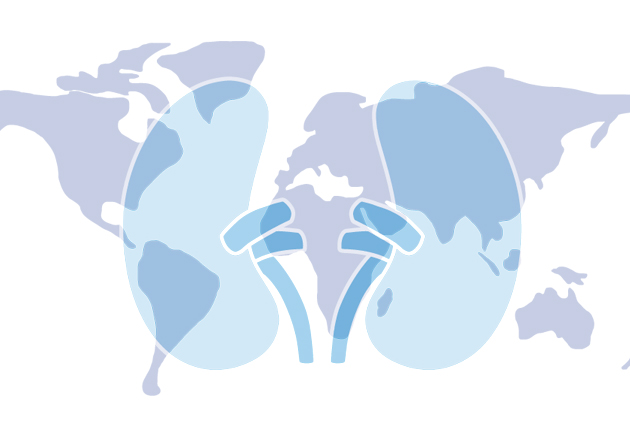ISN Council elections: Meet candidates from North America and NIS & Russia
In the run up to the ISN Council elections, we will introduce the different candidates who you can vote for. You can cast your vote between February 1st and March 3rd, 2017. Over the next month, you will receive your unique and secure link to access the voting system. These are the statements from candidates in North America and NIS & Russia.
The ISN Council is the governing body and the legal trustee of the Society. Its composition reflects the various disciplines and geographic diversities that make up ISN. All members of ISN have the chance to cast their vote and change the way the ISN Council will look in the next term. In the meantime, before making your choice, read the guide to the elections, HERE.
Make sure your membership is up to date so you can vote. Renew your membership online HERE. If your email address has changed, please notify: membership@theisn.org.
This is the list of candidates for the regions of North America and NIS & Russia with their statements.
NIS & Russia

Elena Zakharova, Department of Nephrology, Moscow City Teaching Hospital, Russia
‘I have been involved in the ISN activities in Russia and NIS for many years, serving until 2015 as ISN Regional committee (board) chair, and have put in place important steps to implement ISN programs. My position of the Vice-President of the Russian Dialysis Society helps me to interact with national, regional and international colleagues. On the other hand, being a clinical practitioner and lecturer, I fully understand and share the problems and challenges, which my colleagues face in their everyday professional life. I am really committed to the ISN mission in the developing part of the world, and hope that if I have a privilege to represent NIS and Russia in the ISN Council, I can make myself useful to my colleagues throughout many countries of the Region, working for further professional education, cooperation and integrity.’ (Full statement available through the voting platform).
North America
 Jorge Cerdá, Albany Medical College, Albany New York
Jorge Cerdá, Albany Medical College, Albany New York
‘Worldwide, millions of lives are affected by kidney disease: Central-American cane workers develop
severe CKD; Sub-Saharan Africans suffer severe neonatal and maternal kidney failure; inner-city African Americans experience hypertension and CKD. Most of these complications are avoidable with effective, inexpensive community measures. As a native of Uruguay and ISN Ambassador, I recognize the obstacles to implement such measures, and the urgent need for education, research and publication support in developing regions. As Associate Director of the ISN 0by25 initiative, I currently have the privilege of actively participating in such exciting, wide-reaching ISN projects. As ISN Councilor, I will lead the expansion of current and novel ISN resources to impact the AKI-to-CKD continuum to maximum effectiveness, and promote coordination with regional and global organizations with similar goals, leveraging the power of ISN to address social and economic issues in their contribution to kidney disease.’
 Lance Dworkin, University of Toledo College of Medicine & Life Sciences in Ohio
Lance Dworkin, University of Toledo College of Medicine & Life Sciences in Ohio
‘Particularly in the United States, our specialty has paid insufficient attention to the global burden of kidney disease. In contrast, ISN is unique among kidney organizations because of its philanthropic mission and international focus on education and patient care. As a member of the ISN Council, I would work to increase awareness of the negative impact of kidney disease worldwide. I believe that training is critical; I support the expansion of the ISN Sister Renal Center, Fellowship, and Educational Ambassador Programs. We also need innovative new programs such as web-based nephrology, whereby developed centers could assist remotely in the diagnosis and care of patients; reverse fellowships to train nephrologists on site rather than forcing them to leave their communities for one to two years; and expanded screening to better understand kidney disease globally. I promise to be a committed, active, and visible member of the council.’
 Kamyar Kalanter-Zadeh, Division of Nephrology & Hypertension University of California Irvine, School of Medicine Orange
Kamyar Kalanter-Zadeh, Division of Nephrology & Hypertension University of California Irvine, School of Medicine Orange
‘Each year over a million people in the world with advanced stages of chronic kidney disease need to transition to dialysis or undergo kidney transplantation. Whereas in some countries there may not be sufficient resources to offer dialysis therapy to all those who require it, in other nations dialysis may be overutilized. Additional possibilities including conservative management of kidney disease and incremental dialysis may help many of these people and expand options for patients and heath care providers. Nephrologists in North America and Western Europe and nephrologists in other nations should have the opportunity to interact with and to learn from each other. Together we can revisit traditional approaches, develop new methods, and implement new clinical paradigms. As an active clinician, teacher and scientist, I strive to join forces for international collaboration to improve patient care, education and research. Together we can improve clinical outcomes and global heath and achieve even more.’
 Qi Qian, Mayo Clinic College of Medicine and Mayo Graduate School and Nephrology Hospital Practice at Mayo Clinic Rochester
Qi Qian, Mayo Clinic College of Medicine and Mayo Graduate School and Nephrology Hospital Practice at Mayo Clinic Rochester
‘As a Council member, I would advocate for ISN’s global mission of eliminating kidney disease and extend my involvement in ISN strategic programs in which I currently serve: recruiting and mentoring ISN Fellows, clinical teaching as an Educational Ambassador, delegate speaker for ISN at multiple ISN Program conferences and establishing quality improvement (QI) mechanisms in developing countries with emphasis on prevention of AKI and CKD progression. In collaboration with colleagues in China, we have established and will continue to strengthen an ISN Trio-Sister Renal Center (Mayo, Fourth Military University, China and Zhejiang University, China). We have also established two ISN-endorsed educational initiatives: the International Network of Acid-Base Electrolytes, and the Nephrology Update West Lake Forum. These efforts are in accord with the ISN’s impressive efforts to address the disparities in nephrology practice/research between developing and developed countries.’
 Brad Rovin, Ohio State University Wexner Medical Center
Brad Rovin, Ohio State University Wexner Medical Center
As an ISN Councilor, Dr. Rovin would like to work towards improving the care and treatment of patients with glomerular diseases worldwide. In a multi-phase approach, he would focus on defining the magnitude of the glomerulonephritis problem in countries where biopsies are not routinely done and where available immunosuppressive therapies are rudimentary.
He would then establish glomerular disease training programs for nephrologists in these areas, perhaps locally, or perhaps
within already established programs within the United States, Canada and Europe. He would facilitate collaborations with a network of nephropathologists to read biopsies from these areas.
Finally, he would work with the medical organizations of these countries, the pharmaceutical industry and experienced clinical trial organizations to bring clinical trials to these regions so patients could benefit from novel treatments.
 Isaac Teitelbaum, Home Dialysis Program at the University of Colorado School of Medicine in Aurora, Colorado
Isaac Teitelbaum, Home Dialysis Program at the University of Colorado School of Medicine in Aurora, Colorado
‘I feel strongly that access to dialysis should not be a privilege reserved for those blessed with the resources to obtain it, but should be a right available to the entire population of the world. While this should ideally become a reality for patients with end stage kidney disease it is even more imperative that this be the case- as soon as possible- for those with reversible kidney injury. The ISN 0by25 initiative is targeted at achieving this goal. As a member of the International Society for Peritoneal Dialysis I have worked in close collaboration with the ISN for several years to provide education regarding various aspects of kidney disease to underserved areas in Africa and Asia. If elected to the ISN Council I hope to be able to intensify these activities.’

Tushar Vachharajani, W. G. (Bill) Hefner VA Medical Center, Salisbury, North Carolina
‘I am humbled and delighted to be nominated to serve as an ISN Councilor. If elected, I will continue to work with ISN Leadership to strengthen the existing educational programs. With your kind support, I wish to develop training programs to improve procedural skills to support dialysis vascular access care across the globe. I will continue to build on the overwhelming response ISN Education team has received for webinars and other collaborative contents developed over the past four years. My interactions with the global nephrology community over the past decade have provided me with a unique insight into practice patterns, resource limitations and other hurdles encountered in different regions of the world. I believe, that these insights will help me develop educational programs with regional focus. I intend to continue advocating for the global nephrology community and build easy access to educational resources to improve overall patient care.’

Myles Wolf, Duke University School of Medicine
As a member of ISN Council, Dr. Wolf will work with ISN leadership and its membership on several initiatives that build on his areas of expertise and aim to advance international nephrology and improve global kidney health:
- Clinical Nephrology: Work with medical diagnostics firms to develop novel point-of-care laboratory tests to enhance rapid diagnosis of AKI and CKD in lower income countries.
Clinical Education: To enhance global training in nephrology, increase international nephrologists’ access to health-related information and resources, including journal articles, databases, statistical programs, joint conferences, and webinars.
Research Mentorship: Increase opportunities for aspiring nephrology investigators and clinicians in lower income countries to gain mentored research experience with experts in the field.
Research Networks: Develop an international network to conduct innovative and pragmatic clinical trials in countries with high rates of kidney disease but limited clinical trials infrastructure.
Read about the candidates in other regions.

